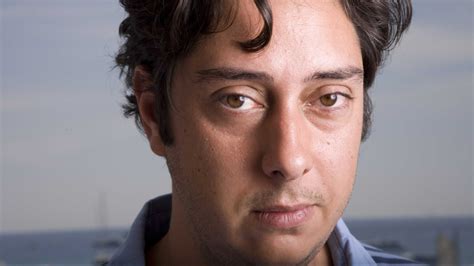A Quote by Henry Giroux
In Quebec, in spite of police violence and threats, thousands of students demonstrated for months against a former right-wing government that wanted to raise tuition and cut social protections. These demonstrations are continuing in a variety of countries throughout the globe and embrace an investment in a new understanding of the commons as a shared space of knowledge, debate, exchange and participation.
Quote Topics
Against
Commons
Continuing
Countries
Cut
Debate
Demonstrations
Embrace
Exchange
Former
Globe
Government
Investment
Knowledge
Months
New
Participation
Police
Police Violence
Quebec
Raise
Right
Right-Wing
Shared
Social
Space
Spite
Students
Thousands
Threats
Throughout
Tuition
Understanding
Variety
Violence
Wanted
Wing
Related Quotes
Power is global and politics is local. That must change. We need a new language for understanding new global power formations as well as new international modes of politics to fight them. Social movements must move outside of national boundaries and join with others across the globe to fight the savagery of neoliberal global politics and central to such a task is the work of intellectuals, artists, cultural workers, and others who can fashion new tools and social movements in the fight against the current anti-democratic threats being imposed all over the globe.
They asked if our own nation wasn't using massive doses of violence to solve its problems, to bring about the changes it wanted. Their questions hit home, and I knew that I could never again raise my voice against the violence of the oppressed in the ghettos without having first spoken clearly to the greatest purveyor of violence in the world today-my own government. For the sake of those boys, for the sake of this government, for the sake of hundreds of thousands trembling under our violence, I cannot be silent.
Government's running the student loan program; what in the world could be wrong with it? If the government's running it, if Obama's taken it over, and he's got a lot of compassion, a big heart, loves people, what could possibly be wrong with it? And then the subject of tuition came up, and how come tuition never gets cut? Why does tuition always go up? Guarantee, folks, when you subsidize something, if you run a university and the government's gonna subsidize parts of your operation, why in the world should you cut anything?
What type of new economical system can organize this system? There is another sector in our life, that we rely on every single day, that are absolutely essential: the social commons, the social economy. It is all the activity we engage in to create social capital. It doesn't create capital market. Social commons is growing faster than the market place. It is growing faster than the market place. The social commons include any activity that is deeply social and collaborative.
Women in the Arab world have a rich history in their active participation in political change from the Algeria revolution against the French occupation to the most recent revolution in Tunisia, Egypt, Libya among other countries. The question is not their participation. Their question is the incorporation of women's voices fully in the new definitions of the countries where change has happened.
The challenges that young people are mobilizing against oppressive societies all over the globe are being met with a state-sponsored violence that is about more than police brutality. This is especially clear in the United States, given its transformation from a social state to a warfare state, from a state that once embraced a semblance of the social contract to one that no longer has a language for justice, community and solidarity - a state in which the bonds of fear and commodification have replaced the bonds of civic responsibility and democratic vision.
Let's remember that our leadership is defined not just by our defense against threats, but by the enormous opportunities to do good and promote understanding around the globe ? to forge greater cooperation, to expand new markets, to free people from fear and want. And no one is better positioned to take advantage of those opportunities than America.

































